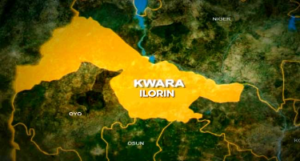Over 5,000 displaced victims of a demolition exercise conducted by the Nigerian National Petroleum Company Limited (NNPCL) in Kwara State have made a heartfelt appeal for compensation, years after the incident that upended their lives. The demolitions, which took place in March 2018 along the Oke-Oyi, Tanke pipeline road to Babaode in Ilorin, have left thousands of families in a state of despair, with many still struggling to rebuild their lives.
At a recent press conference held in Ilorin, the victims, led by their representative Tope Ajetunmobi, voiced their frustration and desperation, calling on the government and the NNPCL to finally address their plight. Ajetunmobi highlighted the long and painful journey the victims have endured since the demolitions, which saw over 930 structures razed to the ground.
These properties, once the homes and businesses of the affected families, were estimated to be worth over N160 billion at the time. The financial and emotional toll of the demolitions has been profound, with many of the displaced still living in limbo, waiting for the compensation they believe they are owed.
Despite the passage of time, the victims have yet to receive any form of restitution. Ajetunmobi pointed out that the 8th House of Representatives had passed a resolution in May 2019, urging the NNPCL to assess the value of the affected properties and enter into negotiations with the victims.
However, according to Ajetunmobi, the NNPCL has largely ignored this directive. Out of 17 invitations extended to the company by the House of Representatives from the 8th to the 10th sessions, the NNPCL has only honored three. This lack of engagement has left the victims feeling abandoned and marginalized.
The consequences of the demolitions have been devastating. Families have been torn apart, with many losing not just their homes but also their livelihoods. The physical and emotional toll has been immense, with some victims reportedly suffering from health issues as a result of the stress and uncertainty. The community that once thrived along the pipeline road has been decimated, with former residents now scattered across the state, struggling to make ends meet.
 In their appeal, the victims have called on President Bola Tinubu to intervene in the matter, urging him to use his office to ensure that justice is done. They emphasized that with the current economic realities in Nigeria, compensation is more crucial than ever.
In their appeal, the victims have called on President Bola Tinubu to intervene in the matter, urging him to use his office to ensure that justice is done. They emphasized that with the current economic realities in Nigeria, compensation is more crucial than ever.
The inflationary pressures and economic challenges facing the country have only compounded the difficulties faced by the displaced families, making it imperative that the government and NNPCL take swift action to address their needs.
The victims have set a one-week deadline for the government to respond to their demands, expressing hope that President Tinubu will prioritize their case. They argue that the compensation is not just a matter of financial restitution but also a step towards restoring their dignity and recognizing the suffering they have endured over the past several years.
The situation in Ilorin is a stark reminder of the broader issues of displacement and compensation in Nigeria. Across the country, many communities have been uprooted by government projects, industrial expansions, and infrastructure developments, often with little or no compensation.
The case of the Kwara State victims highlights the need for a more transparent and responsive approach to dealing with the aftermath of such exercises. The government, as well as corporations like the NNPCL, have a responsibility to ensure that affected communities are adequately compensated and supported in rebuilding their lives.
As the victims await a response from the government, their appeal resonates with a wider audience, calling attention to the plight of those who are often forgotten in the wake of development projects. Their demand for compensation is not just about money; it is about justice, recognition, and the right to rebuild their lives with dignity.
In the coming days, all eyes will be on the government and the NNPCL to see how they respond to this growing call for action. For the victims, the hope is that their long wait for justice is finally coming to an end, and that they will soon receive the compensation they have been fighting for.




